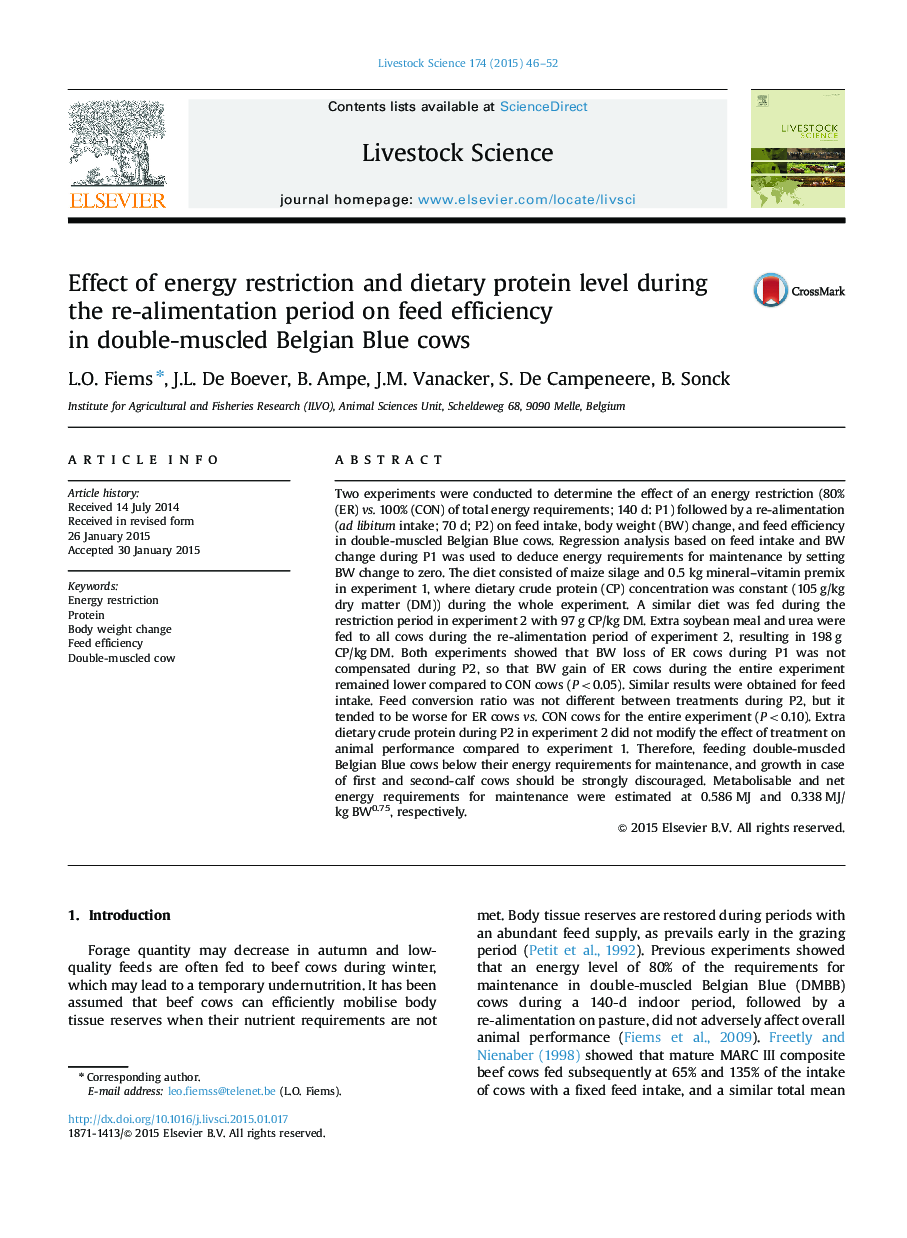| Article ID | Journal | Published Year | Pages | File Type |
|---|---|---|---|---|
| 5790051 | Livestock Science | 2015 | 7 Pages |
â¢Belgian Blue cows do not fully compensate weight loss after an energy restriction.â¢There is no compensatory energy intake after an energy restriction.â¢An energy restriction is not recommended because of the inefficient nutrient use.â¢Maintenance energy requirements are similar to those of other beef breeds.
Two experiments were conducted to determine the effect of an energy restriction (80% (ER) vs. 100% (CON) of total energy requirements; 140 d: P1) followed by a re-alimentation (ad libitum intake; 70 d; P2) on feed intake, body weight (BW) change, and feed efficiency in double-muscled Belgian Blue cows. Regression analysis based on feed intake and BW change during P1 was used to deduce energy requirements for maintenance by setting BW change to zero. The diet consisted of maize silage and 0.5 kg mineral-vitamin premix in experiment 1, where dietary crude protein (CP) concentration was constant (105 g/kg dry matter (DM)) during the whole experiment. A similar diet was fed during the restriction period in experiment 2 with 97 g CP/kg DM. Extra soybean meal and urea were fed to all cows during the re-alimentation period of experiment 2, resulting in 198 g CP/kg DM. Both experiments showed that BW loss of ER cows during P1 was not compensated during P2, so that BW gain of ER cows during the entire experiment remained lower compared to CON cows (P<0.05). Similar results were obtained for feed intake. Feed conversion ratio was not different between treatments during P2, but it tended to be worse for ER cows vs. CON cows for the entire experiment (P<0.10). Extra dietary crude protein during P2 in experiment 2 did not modify the effect of treatment on animal performance compared to experiment 1. Therefore, feeding double-muscled Belgian Blue cows below their energy requirements for maintenance, and growth in case of first and second-calf cows should be strongly discouraged. Metabolisable and net energy requirements for maintenance were estimated at 0.586 MJ and 0.338 MJ/kg BW0.75, respectively.
